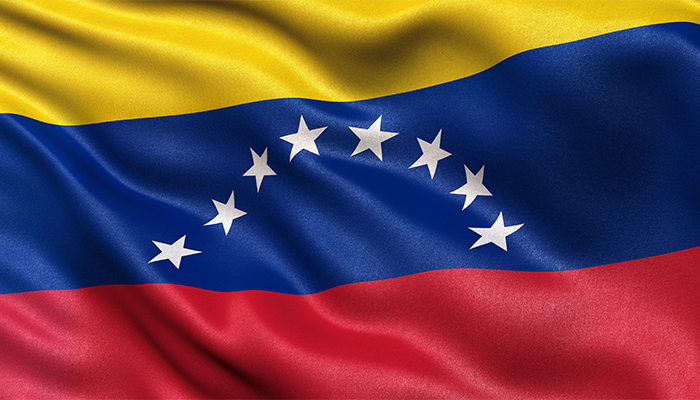News
Venezuela is latest LATAM country to adopt warning labels
9 Aug 2024Scheduled for December 2024, Venezuela will introduce mandatory warning labels on foods to inform consumers if they are high in salt, saturated fat, sugar, and trans fats.
Venezuela is the latest nation to implement mandated labels warning consumers of products’ “high in” content. Latin America has long been considered at the forefront of global legislative and food landscapes’ efforts to introduce labels. The industry will see these emerge on front-of-package labelling in Venezuela by the end of the year.

Announced in 2022, Venezuela’s Ministry of People’s Power for Health published Resolution N°137/2021 to regulate the labelling of manufactured foods high in sugar, saturated and trans fats. Using a warning label system, Venezuela will introduce these into the country in stages. Its front-of-package labelling will provide information about the sugar, saturated fat, and trans fat content of manufactured foods.
The World Obesity Federation published a document stating that the country’s first-phase labels consist of octagonal warnings for sodium. From 2026, it will introduce labels for sugar, saturated fats, and trans fats. The law will come into effect on 7th December 2024.
Latin America leads warning labels
Venezuela’s anticipated adoption follows existing regulations in Mexico, Peru, Uruguay, Argentina, and Colombia.
Labelling laws have revolved around food products that exceed a consumer’s recommended daily value of any “nutrient of concern.”
Utilising warning labels to indicate “high” levels of certain contents in foods caught the attention of Latin American regulators in 2016, when Chile put the front-of-packaging information on its products. The move came after Mexico put the “daily guidance amounts” label on the fronts of food packaging in 2010, and Ecuador introduced colour-coded traffic light labels to indicate a product’s nutritional value.
In 2021, a research study explored the changes in food purchases after Chile’s policies on food labelling, marketing and sales in schools. It found families bought fewer foods labelled with “high in” warnings. Chilean consumers opted for 27% less sugar and 37% less salt post-label implementation than they would have if the labelling and advertising law had not been adopted.
As well as impacting packaging, the label regulation had another effect on new product development. Manufacturers could launch new food items and reformulate existing goods with less sugar and less salt to avoid using warning labels and put consumers off buying their products.
Octagonal labels indicating food contents have since entered numerous countries around Latin America. Seven years after Chile’s pioneering approach to the region, Venezuela is next.
Ultra-processed foods tend to be cheap and readily available
Research indicates that ultra-processed foods (UPFs) are prevalent in Latin American diets. A 2022 research study found that, on average, 20-30% of consumers’ daily calories come from UPFs.
From December, Venezuelan food packaging and supermarket shelves will also feature the now-common octagonal indicator for a product’s nutritional value. However, there is another significant factor impacting consumer UPF purchases: cost.
“Because UPF generally cost much less than minimally processed or unprocessed foods and are more readily available, those of lower socioeconomic status often find UPFs as a frequent or only food choice when budgeting household expenditures,” a spokesperson for the World Health Organization (WHO) told Ingredients Network.
UPFs also typically cost less to produce, making them an appealing option for manufacturer’s profit sheets. “UPFs are also inexpensive to produce, providing a high-profit margin profit for food and beverage companies, thus providing a strong financial incentive for companies to continue to produce and market more and new varieties of UPF,” the spokesperson for WHO says.
As Venezuela prepares to adopt warning labels on its “high in” products, it is facing the reality of navigating its insecure food environment and UPF concerns amid what the US Department of State has reported, is a country in humanitarian crisis.
Related news

Value is a top priority for today’s F&B consumers
3 Apr 2025
Research from global consultancy Hartman Group suggests there are six core values that brands must tap into to connect with consumers’ needs.
Read more
Make plant-based meat ‘tastier and more affordable’ to fight climate change
31 Mar 2025
The UK’s Climate Change Committee is calling for tastier, more affordable plant-based meat offerings as part of measures to counteract the nation’s environmental impact.
Read more
Clean-label cereals prompt fortification debate
28 Mar 2025
Marks & Spencer has caused a stir with the launch of a range of breakfast cereals in the UK containing minimal ingredients.
Read more
UK consumers could be eating cultivated meat within two years
26 Mar 2025
Cell-cultivated products (CCPs), from chicken nuggets to beefburgers, could be on UK supermarket shelves by 2027 after regulators launched a sandbox to accelerate approvals.
Read more
Future F&B flavours favour exploration and explosive taste profiles
25 Mar 2025
Exploration and experimentation will define the future of flavour, according to Mintel, as consumers seek out taste profiles and textures that offer an adventurous eating experience.
Read more
‘Health’ labels on products reduce consumers’ willingness to pay
10 Mar 2025
A study into front-of-packaging “health” labelling finds that these labels alone can lower US consumers’ willingness to pay.
Read more
Food industry lags on healthier product formulation, nutrition index finds
7 Mar 2025
The world’s biggest food manufacturers derive just 34% of their sales from healthier products, according to the 2024 Global Access to Nutrition Index.
Read more
Does calorie labelling lead to reduced consumption?
27 Feb 2025
Calorie labelling of food products leads to a small, but consistent, reduction in the number of calories consumed, a study suggests.
Read more
F&B industry hit with fresh greenwashing claims
26 Feb 2025
The food and beverage (F&B) industry is under fresh scrutiny amid claims of greenwashing, with Arla the latest company in the firing line.
Read more
Have scientists discovered a new tool to measure UPFs?
19 Feb 2025
Researchers have developed a new scoring system and database, compiling over 50,000 food items, of which over 1,000 are classified as ultra-processed.
Read more